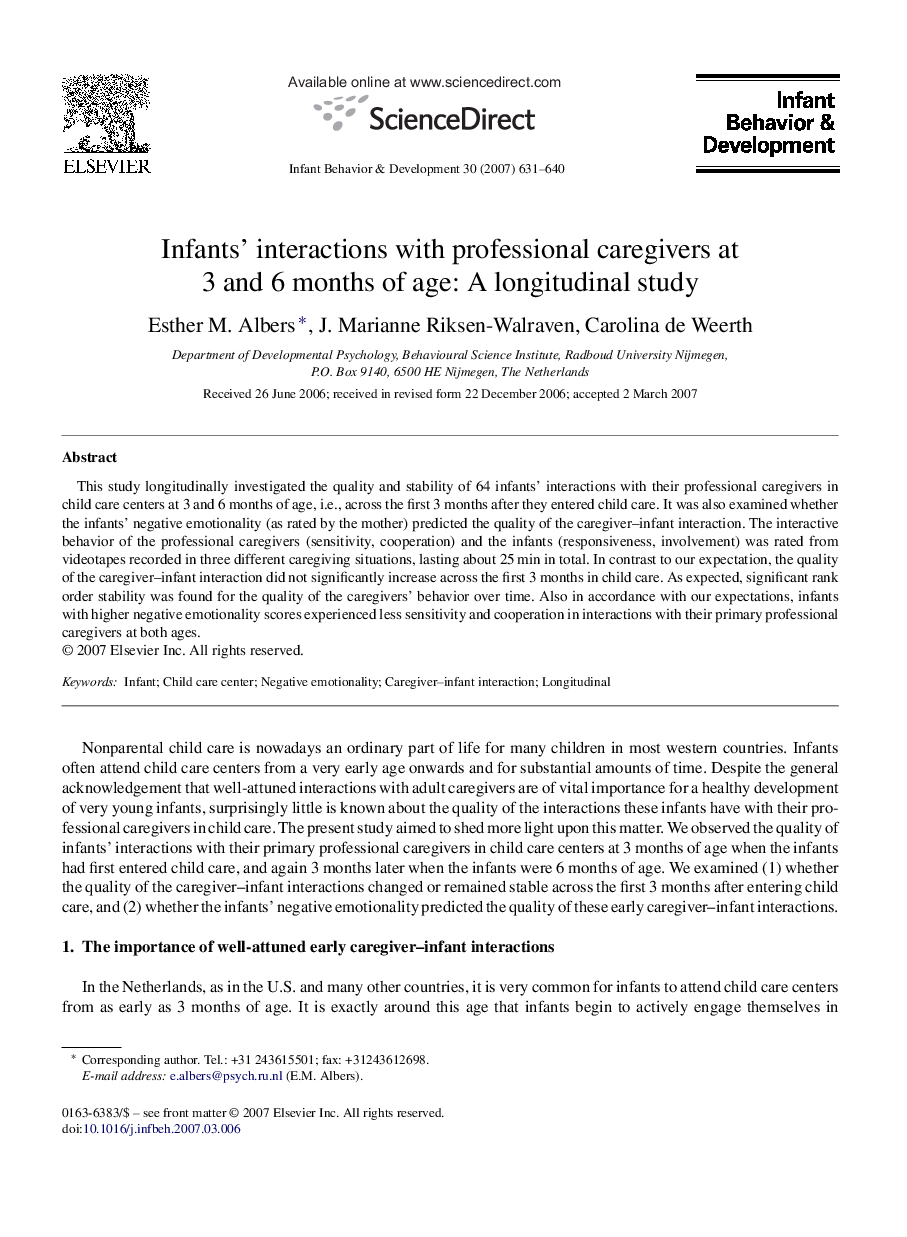| Article ID | Journal | Published Year | Pages | File Type |
|---|---|---|---|---|
| 917601 | Infant Behavior and Development | 2007 | 10 Pages |
This study longitudinally investigated the quality and stability of 64 infants’ interactions with their professional caregivers in child care centers at 3 and 6 months of age, i.e., across the first 3 months after they entered child care. It was also examined whether the infants’ negative emotionality (as rated by the mother) predicted the quality of the caregiver–infant interaction. The interactive behavior of the professional caregivers (sensitivity, cooperation) and the infants (responsiveness, involvement) was rated from videotapes recorded in three different caregiving situations, lasting about 25 min in total. In contrast to our expectation, the quality of the caregiver–infant interaction did not significantly increase across the first 3 months in child care. As expected, significant rank order stability was found for the quality of the caregivers’ behavior over time. Also in accordance with our expectations, infants with higher negative emotionality scores experienced less sensitivity and cooperation in interactions with their primary professional caregivers at both ages.
